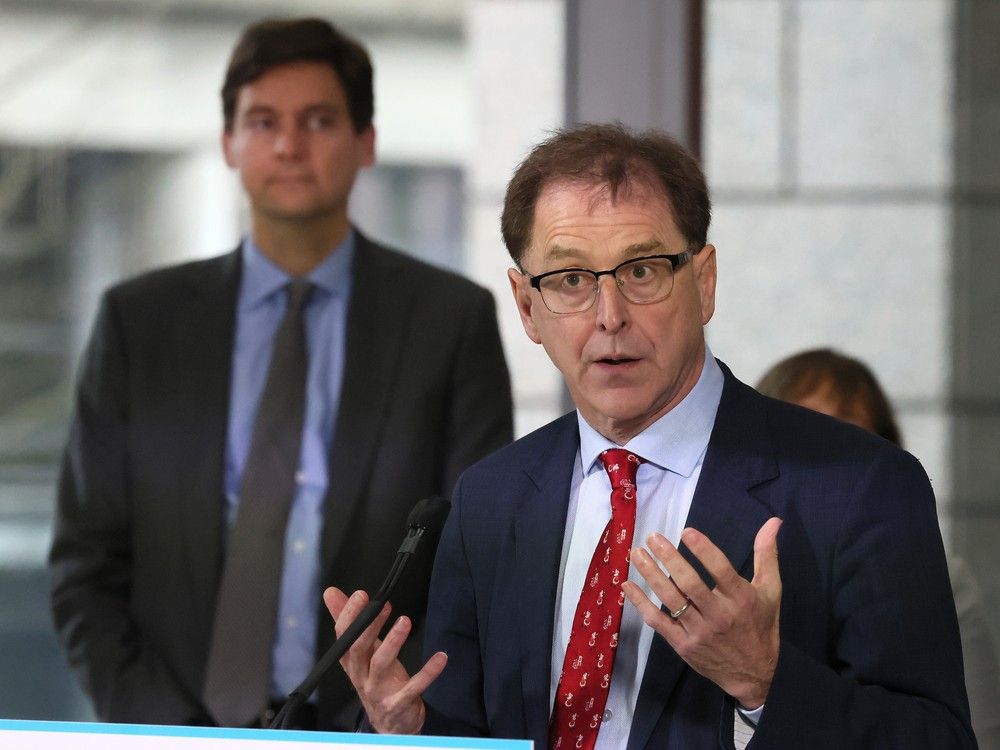
B.C. Hydro opened its second call for new sources of electricity barely two weeks ago, but the projects in its 2024 call for power remain under review by the B.C. Utilities Commission, with questions raised about cost and overlapping claims of First Nations during the process.
The province has promised to expedite the addition of new, renewable power sources to B.C. Hydro’s inventory, using Bill 14 to exempt projects from environmental review processes. Last December, B.C. Hydro picked 10 such projects to add up to 4,800 gigawatt hours per year of electricity, with some starting to deliver electricity by 2028.
However, the Utilities Commission’s panel reviewing the energy purchase agreements has extended the timetable for the written review seven times, from an initial closing date for submissions of May 1 to a final closing date of July 8.
The BCUC’s role is to review B.C. Hydro’s energy purchase agreements “to determine whether they are in the public interest,” said BCUC spokesperson Kelsey Newsham Baerg.
Extensions to this review were granted to give B.C. Hydro more time to respond to issues raised in letters sent by affected parties, such as overlapping land claims in relation to several proposed projects.
Newsham Baerg said there is no set deadline for a decision, which has reached the “deliberations phase,” but that could come as early as Oct. 6, based on the commission’s aim to issue results within 90 days of the close of proceedings.
On Tuesday, Energy Minister Adrian Dix said the “BCUC is taking an appropriate level of time, but I don’t expect any delay in the timeline.”
“In fact, we’ve moved forward very quickly on all of these projects,” Dix added, pointing to government’s Bill 14, which was drafted specifically to streamline approval of renewable energy projects such as the projects selected in the 2024 call for power.
Executive director for the Clean Energy Association of B.C., Cole Sayers, who goes by his Nuu-chah-nulth name Kwatuuma, said his group is “following this proceeding closely and have no concerns at this time.”
However, a think-tank that has been critical of the energy policies in government’s CleanBC program does see a delay in the proceedings and questions whether B.C. Hydro will be able to hit the ambitious deadlines set in the 2024 call for power.
B.C. Hydro needs to acquire 3,700 gigawatt hours per year of electricity before 2033 to meet forecast increases in electricity demand and wants to put the first 700 gigawatt hours per year on the grid before 2029.
B.C. Hydro spokesperson Saudamini Raina, in and email response to Postmedia questions, said the private producers have committed to “a guaranteed commercial operation date” in their agreements. Critic Barry Penner, however, noted the timelines are tight.
“Delay is not your friend when you want projects built on time and on budget,” said Penner, executive director of the Energy Futures Institute, an offshoot of the pro-resources think-tank Resource Works.
Penner, a former B.C. cabinet minister and lawyer who has represented independent power producers, said the projects in the 2024 call for power align with the needs that B.C. Hydro spelled out in the last integrated resource plan that the utilities commission has already approved.
“So this process, I would have normally thought would be fairly routine,” Penner said.
From previous experience, Penner said independent power producers run into problems securing financing for the next steps of developing proposals, including the detailed permitting that projects still face.
Government has promised to streamline permitting for such projects, but Penner noted that detailed permits for things such as road building, stream crossing or siting facilities require time.
“Governments of every colour have made promises to reduce permitting time, but permitting has actually got longer, despite whatever commitments have been made,” Penner said.
Penner believes one reason the review process is taking longer is the objections of First Nations to half of the IPP locations.
Government made a minimum 25 per cent First Nations ownership of the power projects a requirement of the call for power to help speed them along, and in nine of the 10 projects, the Indigenous share is 51 per cent.
However, neighbouring First Nations have raised objections based on overlapping claims to their territories in five of the projects.
Dix said “there are always challenges with projects on the ground, but we’re confident in these projects.”
B.C. Hydro, in the final argument that it filed with the Utilities Commission, said the permitting process will provide ample opportunity to consult and accommodate Indigenous Nations with overlapping claims.
However, former BCUC commissioner Richard Mason, in his blog Just and Reasonable, said the claims of some First Nations likely won’t end with a Utilities Commission decision.
“First Nations rights are constitutionally protected and if the Crown’s duty to consult is not fulfilled, the Supreme Court of Canada has said that a regulator’s decision to approve a project ‘should be quashed on judicial review,'” Mason wrote in the post.